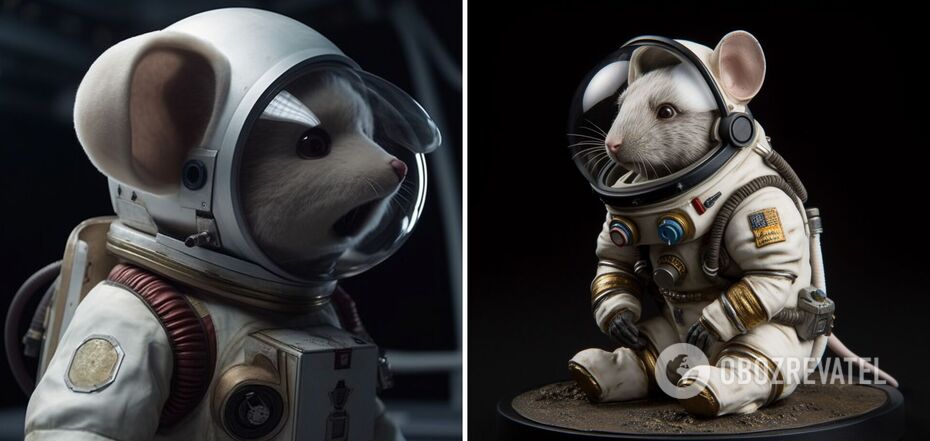Life
Something incomprehensible happened to mice that were in space for two months: what NASA found out
In mice sent into space as part of a NASA experiment, an unexpected link was found between gut bacteria, bone loss and the effects of microgravity on the body. This data can be used in the future to make space travel safer for people.
The researchers reported the results of the study in an article in the scientific journal Cell. They frankly admit that they did not think that exactly what happened would happen.
Scientists have long known that microgravity affects the health of astronauts. It can disrupt the circadian rhythm, cause eye problems, and affect muscle mass and bone density. For example, astronauts lose 1-2% of their bone density in just one month in space. This creates a risk of injuries and fractures.
Scientists also suggest that microgravity disrupts the gut microbiome, which affects other biological functions of the body, such as the immune system.
In one study, NASA scientists sent 20 mice to the International Space Station to study how their bodies would be affected by microgravity. As part of the experiment, 10 mice lived on the ISS for 2 months, while the remaining 10 spent only a month in space and another month undergoing re-adaptation. Meanwhile, a control group of 20 mice on Earth lived in similar conditions, but under normal gravity.
Unexpectedly for the researchers, the mice that had been in space had an increased level of two strains of bacteria in their intestines - Lactobacillus murinus and Dorea. These bacteria are associated with the process of restoring skeletal integrity, known as bone remodelling.
Moreover, the group of mice that had spent longer on the ISS had higher levels of these bacteria.
"This is the beauty of science. We never anticipated these results," Wenyuan Shi, senior author of the paper, microbiologist and executive director of the Forsyth Institute (USA), told Inverse.
The researchers admit that they cannot yet explain what caused the increase in bacteria levels, but they call the results fascinating.
"We had no idea this was going to happen," said Joe Bedri, first author of the study, a strain engineer and synthetic biologist at Invaio Sciences, a technology startup.
He noted that astronauts need to exercise several hours a day to maintain muscle mass and bone density, and as people continue to explore space, scientists should know in advance how this will affect the body.
"As we move into deeper space, it's important to understand all of these different health effects and how we can mitigate them to keep astronauts healthy," Bedri said.
Shi also explained that the data from the mouse study could be used not only for astronauts but also for people suffering from osteoporosis, as scientists will be able to understand how the gut microbiome and bone remodelling affect bone loss.
Bedri also noted that scientists cannot say for sure that the level of bacteria has increased as a result of microgravity. According to him, simply observing these bacteria producing bone-related metabolites does not mean that microgravity is causing them to appear.
He suggests that the increase in these bacteria could be a result of adaptation to microgravity, or perhaps the mice were trying to compensate for the loss of bone by altering their gut microbiome.
He also said that scientists will have to figure out whether the proliferation of these bacteria is bad or good news for the human gut microbiome.
Earlier, OBOZREVATEL told about the research of scientists who told about what sex in space and on Mars will be like.
Subscribe to OBOZREVATEL's Telegram and Viber channels to keep up with the latest news.



























